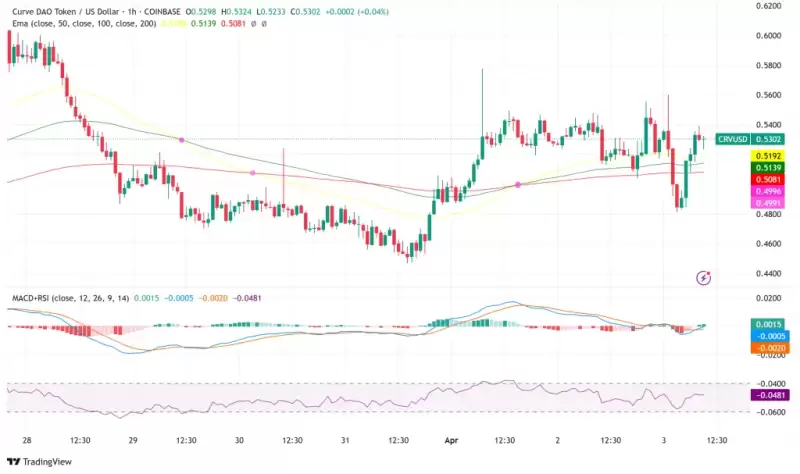 |
|
 |
|
 |
|
 |
|
 |
|
 |
|
 |
|
 |
|
 |
|
 |
|
 |
|
 |
|
 |
|
 |
|
 |
|

Despite compulsory education laws and a large portion of the state's annual budget allocated to education, many children in Kano State, Nigeria, are still engaged in street begging and hawking during school hours. This trend violates the state's Free and Compulsory Universal Basic and Secondary Education Law 2020, which mandates the government to sponsor all children from primary to secondary school.
義務教育法が定められ、州の年間予算の大部分が教育に割り当てられているにもかかわらず、ナイジェリアのカノ州では、多くの子供たちが依然として授業時間中に路上で物乞いや行商に従事している。この傾向は、小学校から中等教育までのすべての子供たちを政府に後援することを義務付ける州の2020年無償義務普遍的基礎・中等教育法に違反している。
Eleven-year-old Ibrahim Fati is one of the hundreds of children found on Kano streets at school time. She left school because her widowed mother could not afford her learning materials. Sighted by a reporter along BUK road at Kofar Famfo around 9 a.m. on Wednesday, 20 November, Fati hurriedly left a motorist who resisted her unwelcome gesture to clean his car.
11 歳のイブラヒム・ファティ君は、学校の時間にカノの通りで見つけられる数百人の子供たちの 1 人です。未亡人の母親が教材を買う余裕がなかったため、彼女は学校を辞めました。 11月20日水曜日の午前9時頃、コファール・ファムフォのBUK道路沿いでレポーターが目撃したファティは、車を掃除するという歓迎されない行為に抵抗した運転手から急いで離れた。
“I left school because my mother could not afford to pay for my learning materials,” Fati responded soberly when asked why she was roaming the street during school hours.
ファティさんは、なぜ授業時間中に街を徘徊しているのかと尋ねられると、「母に教材費を払う余裕がなかったので、学校を辞めました」と冷静に答えた。
Parents Monitor from Vantage Position, Wait for Alms Remittance
保護者は有利な位置から監視し、施しの送金を待ちます
“I like to go to school, but there is no money to feed; even two of my siblings are also on this road begging, and our mother is under that kiosk (pointing) to collect the money for feeding,” she explained.
「学校に行きたいのですが、食べていくためのお金がありません。私の兄弟のうち2人もこの道で物乞いをしており、私たちの母親は餌を買うためのお金を集めるためにそのキオスクの下にいます(指差し)」と彼女は説明した。
Fati's revelation led to a conversation with her mother, Ibrahim Hadiza, who blames poverty for her actions and believes people have low empathy for adults begging on the streets, unlike children.
ファティさんの暴露は、彼女の母親であるイブラヒム・ハディザさんとの会話につながりました。ハディザさんは、彼女の行動は貧困のせいであり、子供とは異なり、路上で物乞いをする大人に対する人々の共感力は低いと信じています。
“I lost my husband two years ago, and nobody is there for us, which is why we are doing this,” she said.
「私は2年前に夫を亡くしましたが、私たちに寄り添ってくれる人は誰もいません。だから私たちはこのようなことをしているのです」と彼女は語った。
While the chat with Hadiza lasted, Fati’s two siblings between ages 7 and 9 kept interjecting the conversations at about ten-minute intervals to remit the money they got from motorists.
ハディザさんとの会話が続いている間、7歳から9歳までのファティさんの2人の兄弟は、運転手から得た金を送金するために約10分間隔で会話を中断し続けた。
This trend also takes place at Kofar Kabuga junction along Gwazo Road. But parents and their children at this location resisted several attempts to speak to them. They signaled themselves and vanished into the distance.
この傾向は、グワゾ通り沿いのコファール・カブガ交差点でも発生します。しかし、この場所にいた親とその子供たちは、彼らに話しかけようとする数回の試みに抵抗しました。彼らは合図をして遠くに消えていった。
Schoolgirls Turn Kano Main Roads to Mini-Markets
女子学生がカノの幹線道路をミニマーケットに変える
Similarly, places like Zoo Road by Court Road and Panshekara Junction in Kumbotso LGA have turned into a mini-market for school-age girls. Some of them come from Kura LGA, about 30 kilometers away, to sell perishable goods during school hours.
同様に、コート・ロードのそばのズー・ロードやクンボツォLGAのパンシェカラ・ジャンクションなどの場所は、学齢期の女の子向けのミニマーケットと化しています。彼らの中には、約30キロ離れたクラLGAから学校の時間帯に生鮮品を売りに来る人もいる。
“We are about 30 in number, coming from Karfi village daily. We used to hire about six tricycles from Kura to come and sell tomatoes here (Zoo Road) and return home in the evening,” Khadija Jubril said.
「私たちは約30人で、毎日カルフィ村から来ています。私たちはクラから三輪車を6台ほどレンタルして、ここ(動物園通り)にトマトを売りに来て、夕方には家に帰っていました」とハディジャ・ジュブリルさんは語った。
Khadija, 10, explained that she dropped out of Galinja Primary School in Kura LGA and has since been selling perishable goods for her parents.
10歳のハディジャさんは、クラLGAのガリンジャ小学校を中退し、それ以来両親のために生鮮食品を販売していると説明した。
Unlike Khadija, eighteen-year-old Auta Haruna, from the same village, never attended a formal school. She has been saving money from her daily sales to buy clothing materials for her forthcoming wedding next month.
ハディジャとは異なり、同じ村出身の18歳のアウタ・ハルナさんは正式な学校に通ったことがなかった。彼女は来月行われる結婚式のための衣料品の材料を購入するために、日々の売上からお金を貯めています。
“I’m doing this (hawking) to buy clothes and other materials for my wedding. I’m sure my hustling will end very soon when my husband eventually marries me and starts taking care of me," she said.
「私は結婚式のための服やその他の資材を買うためにこれ(行商)をしています。夫が最終的に私と結婚して、私の面倒を見てくれるようになったら、私の喧噪はすぐに終わると確信しています」と彼女は語った。
The situation is not different along Panshekara Road. The area is experiencing a daily influx of tween girls from rural areas to the pyramid city for school-time petty trading adventures.
パンシェカラ通りでも状況は変わりません。この地域には、学生時代のささやかな貿易の冒険を求めて、田舎からピラミッドシティに10代の少女たちが毎日流入している。
These communities include 'Dan Baure, Tashar 'Kaba, Tashar Ice, and Kwanar Zuwo, all situated in the Madobi local government area of Kano State.
これらのコミュニティには、「ダン バウレ」、「タシャール ' カバ」、「タシャール アイス」、および「クワナル ズウォ」が含まれており、すべてカノ州のマドビ地方自治体区域に位置しています。
Sadiya Yahaya, 16, comes from 'Dan Baure village in Madobi to sell boiled cassava daily at Sabon Titi, in Kano City.
16歳のサディヤ・ヤハヤさんは、マドビのダン・バウレ村から来て、カノ市のサボン・ティティで毎日茹でたキャッサバを販売している。
“I used to collect raw cassava from some vendors; my mother does the cooking very early, while I transport it to the city for sale. I dropped out of JSS 1 class years back,” she narrated.
「私は以前、いくつかの業者から生のキャッサバを集めていました。母は早い時間から料理を作り、私はそれを売りに出すために街に運びます。私は何年も前にJSS 1クラスを中退しました」と彼女はナレーションしました。
Her story is similar to that of Saliha Zailani, 14, who has been selling peanuts for three years from morning till evening in the Sabon Titi area.
彼女の話は、サボン・ティティ地区で 3 年間朝から夕方まで落花生を売り続けている 14 歳のサリハ・ザイラニの話と似ています。
“Most of my friends and I from Madobi LGA usually assemble here (Sabon Titi) daily from morning to evening to sell some edible items such as boiled cassava, groundnuts, peanuts, Kuli-Kuli, and cooking oil. We remit the monies to our parents in the evening."
「マドビ LGA の友人のほとんどと私は、通常、毎日朝から夕方までここ (サボン ティティ) に集まり、茹でたキャッサバ、落花生、ピーナッツ、クリクリ、食用油などの食用の品物を販売しています。夕方には両親にお金を送金します。」
However, these girls are among the significant number of out-of-school children in Kano. Their revelations showcase how poverty and other socio-economic factors are driving out-of-school children in the state.
しかし、これらの少女たちは、カノのかなりの数の非就学児童の一人です。彼らの暴露は、貧困やその他の社会経済的要因が州内でどのように子どもたちを学校に通わせていないのかを明らかにしている。
In October 2023, UNICEF reported that Kano State has at least 989,234 out-of-school children. This is a significant increase from 2016, when only 81,919 children were out of school.
2023年10月、ユニセフはカノ州には少なくとも989,234人の非就学児童がいると報告した。これは、学校に通っていない子どもの数がわずか 81,919 人だった 2016 年に比べて大幅に増加しています。
免責事項:info@kdj.com
提供される情報は取引に関するアドバイスではありません。 kdj.com は、この記事で提供される情報に基づいて行われた投資に対して一切の責任を負いません。暗号通貨は変動性が高いため、十分な調査を行った上で慎重に投資することを強くお勧めします。
このウェブサイトで使用されているコンテンツが著作権を侵害していると思われる場合は、直ちに当社 (info@kdj.com) までご連絡ください。速やかに削除させていただきます。


























































